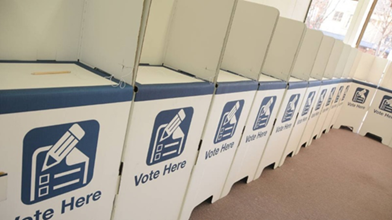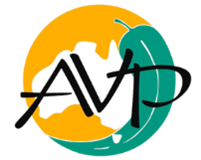March 2025
AUSTRALIAN PEACE AND SECURITY FORUM
The APSF, a not-for-profit association, is a broad network of informed researchers and professionals working to strengthen peace and security for all Australians by providing information, analysis and opportunities for dialogue with Government and civil society.
For more information about
APSF, please visit our website.
If best friends fall out, who you gonna call?
Statements by President Trump, Vice President JD Vance and Secretary of Defence Hegseth have left Europe with the realization that the US is no longer a reliable ally.
The United States and China are contesting for great power supremacy. Australia depends on the United States for security; and on China for our economic prosperity, with China accounting for a third of all our exports.
How should Australia navigate relations with China as our long-term ally becomes unpredictable?
Join our webinar on 18 March at 6-7pm to hear:
Highly respected international security analyst Sam Roggeveen, author of the much-acclaimed book “The Echidna Strategy”, share his assessment of China’s and Australia’s search for peace and security.
Dr Jocelyn Chey, a former senior diplomat at the Australian Embassy in Beijing, and now Adjunct Professor at the Institute for Chinese Arts and Culture at the University of Western Sydney will offer her approach for Australia to live in peace and security with China.
To join this webinar, REGISTER HERE.
AFSP calls on all Federal parliamentarians to support an Australia Peace and Security Strategy
The APSF has written to the Prime Minister, leaders of major parties and current Parliamentarians requesting them to work collaboratively with the Australian people in the next term of government to prepare a comprehensive Australian Peace and Security Strategy (APSS).

“Given that our personal and collective security is, or should be, the most important responsibility for all our elected representatives. Defence is not national security, only an important component of it.” explains Major General (Rtd) Mike Smith, Board member of APSF.
Australian Security Intelligence Organisation Director-General Mike Burgess made a similar call recently when releasing his Sixth Annual Threat Assessment report. He called for national security that’s truly national. The message was clear that it’s no longer appropriate to think of national security as something a security agency provides for the public. National security is something the Australian public provides for itself.
Mystery diseases raise concerns about pandemics
Two recent news items remind us of the risk of unknown diseases sparking a pandemic. In north-western Congo at least 50 fatalities have been reported after three children ate a bat and died within 48 hours following haemorrhagic fever symptoms. The World Health Organization (WHO) has dispatched a team of experts to the area to try to determine the cause.
Closer to home twelve deaths were reported linked to melioidosis, a soil-borne disease, following the intense flooding. The news came days before the World Neglected Tropical Diseases (NTD) Day on 30 January. NTDs affect over 1 billion people globally and are responsible for thousands of preventable deaths every year. As of end 2023, the population requiring interventions for at least one NTD is estimated at 1.5 billion. NTDs can be prevented, controlled and eliminated.
Are we on the brink of another pandemic? Listen to a brief update on current thinking here.
Explosion in illegal biolabs in Australian cities risk home grown pandemics
Pandemics may arise from nature, but as Raina Mcintyre, head of the Biosecurity Program at the Kirby Institute, UNSW Sydney points out we do not hear as much about lab-created pandemics, which may arise as a result of human error or terror.
In an insightful article published on the APSF website, Professor McIntyre explains how there has been explosion of the Maker Movement and DIY labs globally, and there are many public DIY biolabs operating at BSL 1 level (which allow only microbes that do not cause disease in humans) that are legitimate and documented, but self-regulated.
She explains how “there are biohacker labs in most major cities of Australia. However, there is also biohacking in the community outside of DYI lab network, including home gene-editing. With citizen science, there may be risks such as illegal disposal of biological waste, or operating at higher biosafety levels than allowed, and unless we have methods for tracking such activity, quantifying and mitigating the risk is difficult.”

Mcintyre says some illegal labs may have nefarious intent and aim to stay under the radar in the community. “Just as home meth labs have proliferated in the community, so too is it possible that illegal biolabs exist in the community. A lab in a box kit can be purchased online, as can genetic codes and reagents. The open access publication of methods for gain-of-function research and synthetic biology, coupled with the rapidly declining cost of doing such research, poses an increasing risk of lab-generated epidemics or pandemics,” argues Mcintyre.
Professor McIntyre calls for action to improve monitoring “In the cybersecurity field, governments are constantly playing catch up with nefarious actors, who have the latest technology earlier and without any regulatory barriers.”
It’s time to wake up and change our approach to detecting illegal labs. [The maker movement is all about innovation. It challenges people to experiment with (typically new) technologies and create unique items with their own two hands.]
Read the complete article here.

Climate Change is a cost-of-living issue
Climate change is an economic, affordability, and cost-of-living issue. Cost-of-living implications were made clear in recent Consumer Price Index (CPI) data released by the Australian Bureau of Statistics (ABS).
In the 12 months to December 2024, the CPI rose 2.4%. Insurance rose 11%.
While it was slowing from a peak of 16.2% in December 2023, the relationship between insurance cost increases and extreme events would suggest we can expect more upward movement following fires in Victoria and Western Australia and flooding in Queensland
Insurance Council of Australia (ICA) data published in the federal Treasury’s Intergenerational Report shows insured losses from natural disasters rising steadily since the turn of the century. Following NSW floods and other disasters in 2022, they reached almost $7 billion for that year. In Australia, the ICA reported in 2023 that Swiss Re estimates the gap to be 35% and growing.
Insurance will impact equity and affordability. The 2023 Shepparton floods illustrated how extreme events impact poorer and more vulnerable members of a community living in properties more exposed to climate risks.
Treasury’s Intergenerational Report makes it clear natural disasters are contributing to growing fiscal pressures on all levels of government, particularly through disaster assistance.
Extract from a report by Michael Spencer, Senior Research Fellow, Green Lab, Monash University. See the full report here.
Tough year for Peace and Cooperation (already!)
Ceasefires, if not peace agreements, in both Gaza and Ukraine seemed possible in February but by March uncertainty appears to have taken over again. Amid the frail hopes, a push to boost spending on armaments across Europe and the US has gained momentum, while funds for conflict prevention and peacebuilding are being cut, along with development assistance (aid).

UN Secretary-General António Guterres hascalled out the Trump administration for its “severe cuts” to foreign aid.
Guterres told reporters outside the U.N. Security Council that those cuts “will make the world less healthy, less safe, and less prosperous” — taking direct aim at Rubio’s refrain that the U.S. will only keep aid that makes the U.S. “safer, stronger, and more prosperous.”
“In South Sudan, funding has run out for programs to support people who have fled the conflict in neighbouring Sudan, leaving border areas dangerously overcrowded,” Guterres said. “Meanwhile, the United Nations Office on Drugs and Crime will be forced to stop many of its counter-narcotics programs, including the one fighting the fentanyl crisis, and dramatically reduce activities against human trafficking.”
He warned: “The reduction of America’s humanitarian role and influence will run counter to American interests globally.” Source: Devex 3 March 2025
Foreign Aid is Shrinking
Foreign aid budgets are being slashed worldwide as Western governments—from Washington to Berlin—shift spending toward defence and domestic priorities. Governments across Europe are also cutting back. The Netherlands has slashed 30% of its aid budget, redirecting funds to projects that “directly contribute to Dutch interests.” Belgium cut aid by 25%, while France reduced its budget by 37%.

In the UK, Prime Minister Kier Starmer announced a cut to the ODA (aid) budget from 0.5% of Gross National Income (GNI) to 0.3%, its lowest level in 25 years. He followed with a statement to the house of commons, saying that this cut will fund an increase in defence spending from 2.3% of GNI to 2.5% from 2027 following pressure from President Donald Trump to increase defence spending across Europe.
Development minister Anneliese Dodds stepped down within days, to be replaced by Jenny Chapman — a former member of Parliament and current member of the House of Lords who has a long history with the Labour Party but less in the development sector.

President Trump issued an executive order calling for the effective elimination of the U.S. Institute of Peace the U.S. African Development Foundation, and the Inter-American Foundation,— describing them as “unnecessary.”
The USIP is an independent, nonpartisan, national institution established and funded by Congress to the tune of about $50 million per annum. It provides the analysis, training and tools that prevent and end conflicts, promotes stability and professionalizes the field of peacebuilding.
The Institute employs more than 70 specialists with both geographic and subject-matter expertise. These experts are leaders in their fields. They come from the government, military, NGOs, academia, and the private sector. Through its funding program, the Institute has invested $58 million in over 1,700 peacebuilding projects in 76 countries around the world.

Women in Peacekeeping: U.S. negotiators have sought to remove references to disinformation, gender, and international law in the UN peacekeeping agreement.
In 2023, women made up nearly 7% of military personnel and 16% of police units in a force of some 72,000 U.N. peacekeepers worldwide, according to the Better World Campaign. By December 2024, just over 10% of the more than 61,000 blue helmets in uniform were women, according to U.N. figures.

Nuclear power will increase Australia’s security risk
Commenting on the Coalition’s proposal to establish a nuclear reactor industry in Australia, Chris Barrie, who led the defence force from 1998 to 2001, said: “Every nuclear power facility is a potential dirty bomb because rupture of containment facilities can cause devastating damage.
“Modern warfare is increasingly focused on missiles and uncrewed aerial systems, and with the proposed power stations all located within 100 kilometres of the coast, they are a clear and accessible target”.
Barrie is now an executive member of the Australian Security Leaders Climate Group, a collection of national security experts advocating ambitious action to tackle climate change.
Cheryl Durrant, a former senior defence official, said that “nuclear facilities would necessitate expensive and complex missile defence systems as well as allocated cyber and counter-intelligence resources, making our security challenge more complex and expensive”.
Matthew Knott in Sydney Morning Herald 27 February 2025
 Alternatives to Violence Project Australia
Alternatives to Violence Project Australia
Alternatives to Violence
Peacebuilding and alternatives to violence were the focus of the University of New England (UNE) Peace Studies Conference held recently in Sydney.
Dr Marty Branagan, Senior Lecturer in Peace Studies UNE hosted the conference and launched his latest book The Cultural Dimensions of Peacebuilding. Dr Graeme Stuart, Lecturer School of Humanities, at Newcastle University, also launched a book titled The Alternatives to Violence Project Around the World. Dr Stuart is co-convenor of the AVP. APSF Board members Dr Michael Walker and Kathryn Kelly attended the conference.
Several speakers referred to a 2008 study by Erica Chenoweth, an American political scientist and Harvard Professor, that demonstrated that nonviolent attempts at regime change succeeded more frequently than violent attempts. More recent data suggests that the gap in effectiveness is growing; violent attempts to bring about a change of government are now far less likely to succeed than nonviolent attempts.
